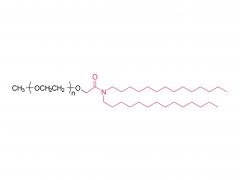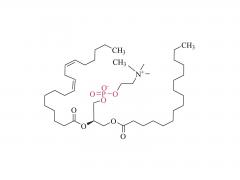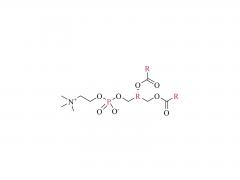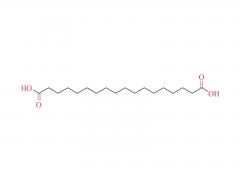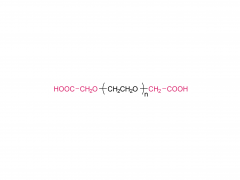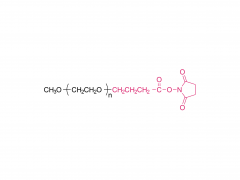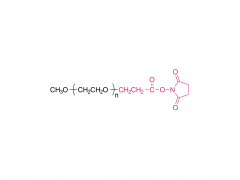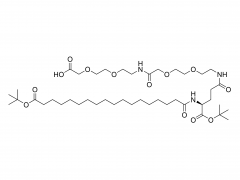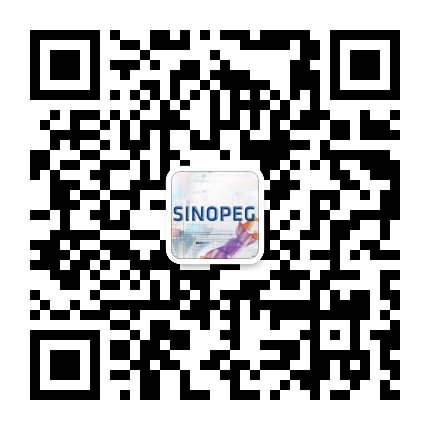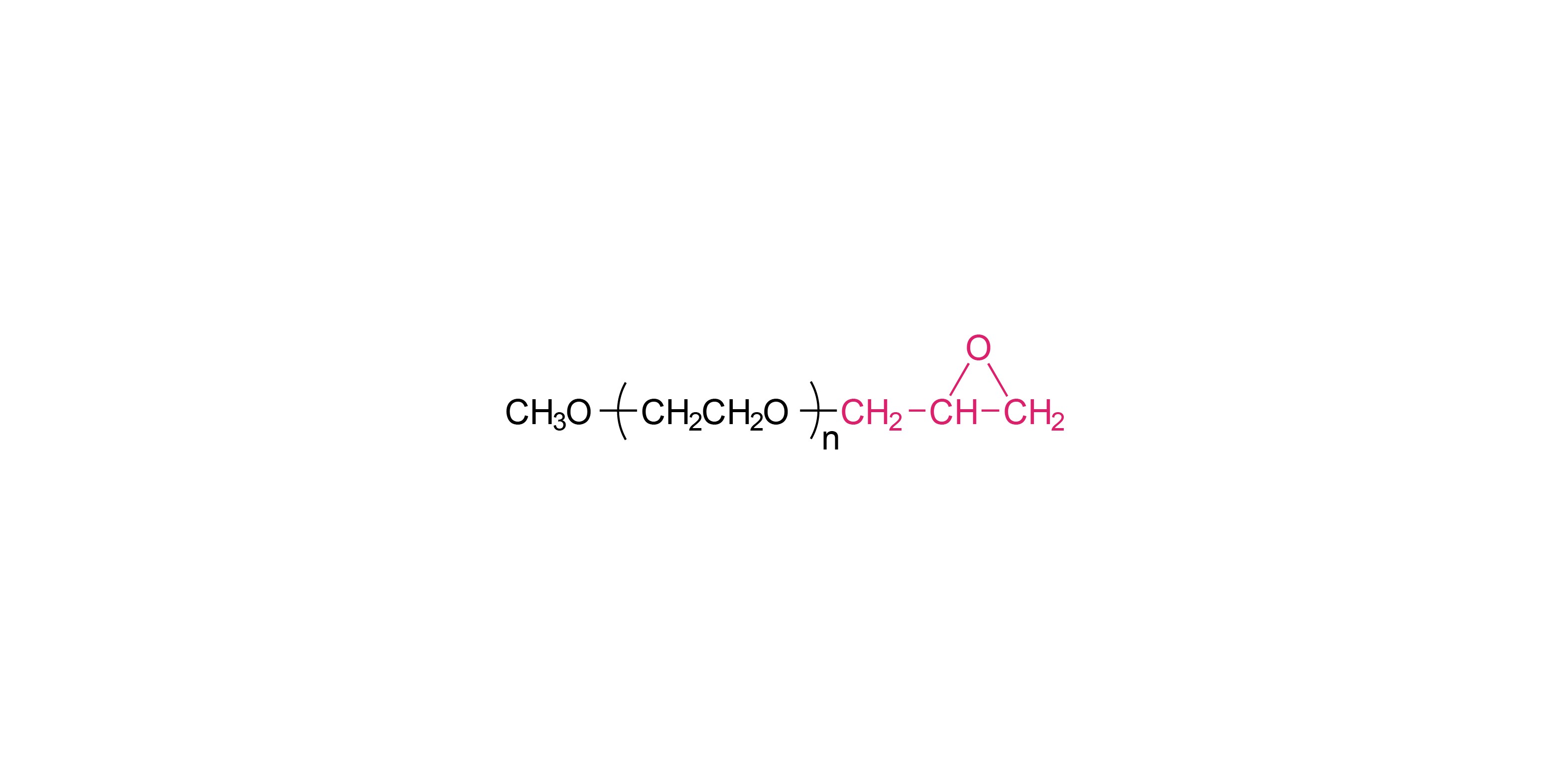
mPEG-EO (Methoxy Polyethylene Glycol Glycidyl Ether) is a functionalized polyethylene glycol (PEG) derivative with an epoxy group (Glycidyl Ether group, Glycidyl Ether) at the end. It can undergo covalent coupling reactions with biomolecules containing amino groups (-NH₂), thiol groups (-SH), or hydroxyl groups (-OH).
1. Structure and Characteristics
PEG segments: Offer excellent biocompatibility, water solubility and low immunogenicity.
Methoxy group (-OCH₃) : Enhances hydrophilicity and improves solubility.
Glycidyl Ether group: High reactivity, it can undergo ring-opening reactions with amino, thiol or hydroxyl groups under mild conditions to form stable covalent bonds.
Chemical structural formula:
mPEG-O-CH₂-CH(O)CH₂ (where "O" represents the ethylene oxide ring)
2. Physical and chemical properties
Molecular weight range: 350, 550, 750, 1000, 2000, 5000, 10000, 20000, etc. (Customizable).
Solubility: Readily soluble in water, DMSO, DMF, THF and other common solvents.
Storage conditions: It should be stored at -20°C in a dry and dark place to avoid moisture affecting the activity of the epoxy group.
3. Main Applications
(1) PEG modification of proteins and antibodies
PEG modification is achieved through the reaction of the epoxy group with the amino group (-NH₂) or thiol group (-SH) of the protein, reducing immunogenicity and prolonging the half-life.
(2) Drug delivery system
It is used to construct PEG drug carriers (such as liposomes, nanoparticles) to improve the solubility and stability of drugs.
(3) Surface modification of materials
Introducing PEG chains on the surfaces of nanoparticles, polymer materials and biosensors can reduce non-specific adsorption and improve biocompatibility.
(4) Biological coupling and immobilization
It is used for the preparation of enzyme immobilization and affinity chromatography media to improve stability and reusability.







